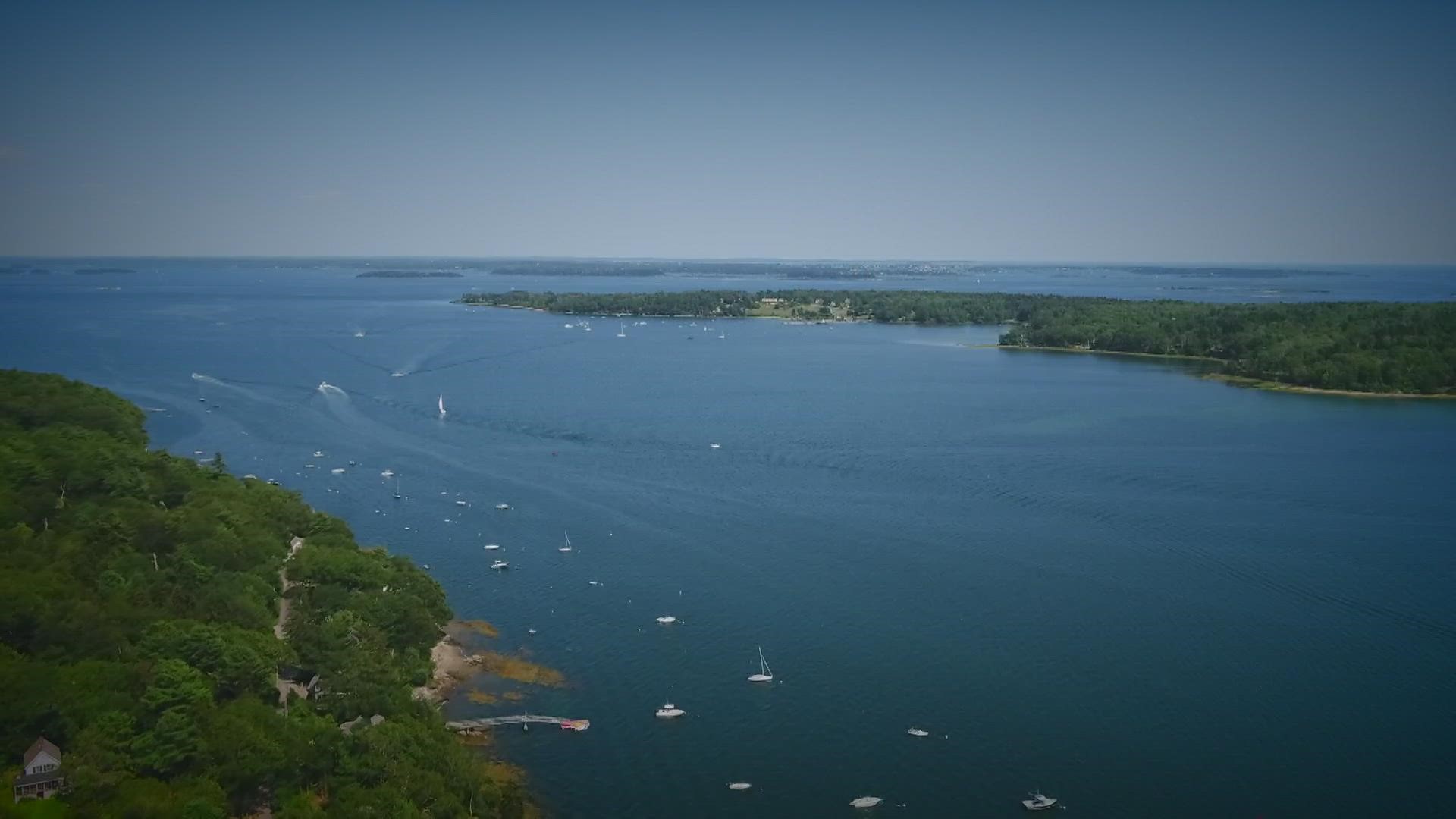PORTLAND, Maine — A growing number of Mainers have noticed changes in their world as a result of climate change.
Based on the latest report on ocean temperatures from the Gulf of Maine Research Institute, more of those indicators are likely to show themselves.
“The big message,” Dr. David Reidmiller, director of the Institute’s climate program, said, “Is that last year was the second warmest year on record. The only year that beat it was the year prior in 2021. And it's part of a continuing trend we’ve been seeing for two decades here.”
The Institute tracks sea surface temperatures in the Gulf of Maine to calculate the annual average.
“Last year was about 4 degrees above the long-term average,” Reidmiller said. That long-term average is based on a 30-year period from 1982 to 2011.
“Look, we will have ups and downs each year. That’s very natural in this world, whether an El Nino or La Nina year. But if you look at the long-term trend, it's undeniable what’s happening out there. And we are seeing [a] profound impact on the data and on the ecosystem.”
He said one of the impacts of that continuing temperature rise is rising sea levels, which are already being felt in some areas. The big ocean storm on Dec. 23, 2022, combined a significant storm surge with astronomically high tides and higher sea levels as well.
The coastal flooding that resulted was the worst many could remember.
“But that storm, Dec. 23rd, was a real eye-opener for a lot of us, same as the storm in 1978. When you have these big moments, as awful as they can be, they can also be teachable moments,” Reidmiller said.
He added there are more everyday signs that are telling people on the coast that sea levels are rising.
“People are starting to see that things they really care about are changing. The way we interact with the marine environment is not what it was 30, 40, 50 years ago,” Reidmiller said.
And he added that those reminders will become more common in the years ahead.
“You notice the beach you like to take your kids to isn’t as accessible as it once was. The town wharf you take your boat on is underwater at high tide now. People are noticing that,” he said.
The key to dealing with the climate crisis, he said, is reducing greenhouse gas emissions. Reidmiller praised Maine’s policies under the Mills administration for making progress but also had the sobering reminder that even with huge changes in human activity, cooling the Earth’s fever will take years.
“Let’s just say, hypothetically, greenhouse gas emissions went to zero tomorrow globally. Temperatures would still increase for another decade or so. The atmosphere responds more quickly to reducing emissions. What doesn’t respond quickly is sea level rise. So we are locked into significant sea level rise for centuries if not millennia," Reidmiller said.

